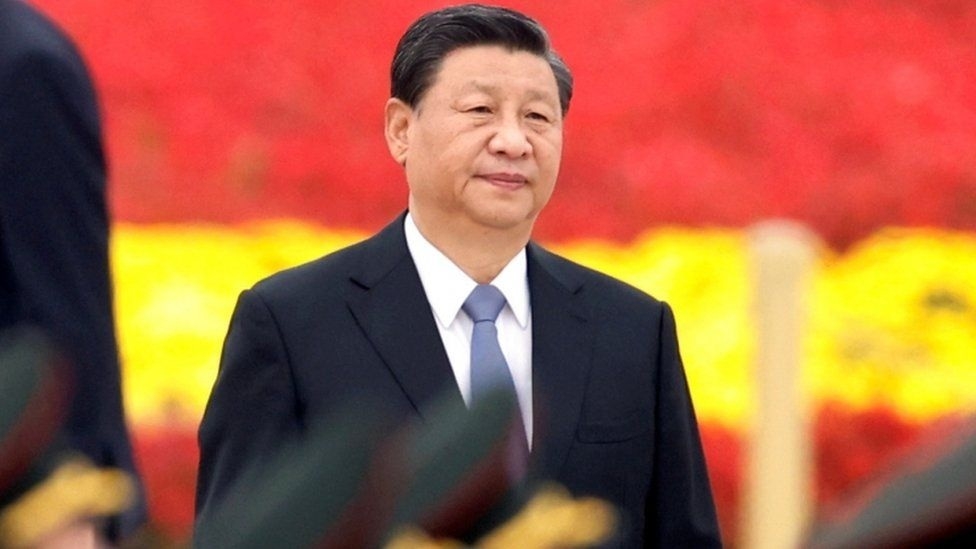EXPANSIONISM
| Date :18-Oct-2022 |

CHINESE President Mr. Xi Jinping’s statement that China would not ‘renounce the use of force to unify Taiwan’ reflects the brazenness of Communist China. The statement is in tune with his speech at the centenary of Communist Party of China on July 1, 2021. Then, he had emphasised that China ‘must take resolute action to utterly defeat any attempt toward Taiwan independence’. That statement of his, and the recent one, both point to the peculiar Communist Chinese characteristic -- expansionism. Though the leadership of Communist China has been accusing the world of hegemonistic designs and expansionism, the fact remains that it itself has been practising that. There are ample instances to prove this point. As is the case, China has boundary disputes with all its neighbours. It rakes up one issue or the other whenever time is ‘ripe’ in its own judgement. By ‘ripe’ time, it means the time when Communist China has formulated the strategy to extract one or the other concession from the other nation involved in negotiations. So, when the Communist Chinese leadership feels that it has to exert pressure on Russia, it rakes up the issue of Vlodivostok and lashes out at ‘Russian Triumphalism’.
When the Chinese leadership found that pinning hopes on Pakistan for access to sea through only Gwadar port investment might not be beneficial to the desired extent, it started focussing on South China Sea. There, it has got maritime disputes with Philippines. China’s brazenly hegemonistic and expansionist attitude became clear when it ‘rejected’ the observation of the Permanent Court of Arbitration at The Hague that backed Philippines in the case regarding disputed waters. The old diplomatic games played by China with India, by expressing ‘displeasure’ over Indian leaders’ visits to Arunachal Pradesh and Ladakh areas is well known. When China was weak, it spoke of centuries old friendship. When it grew a bit stronger, it first severed ties with Russia. When it grew more in strength, it started pursuing the policy of ‘One China’ to stake claim over territories of neighbouring nations, sometimes citing ‘historic’ bonds, and sometimes rejecting ‘imperial history’.
When it emerged as the second largest economy of the world, it started luring strategically placed smaller nations into debt traps. It spoke of ‘One Belt One Road’ initiative, and devised all kinds of mechanism to exert its influence. However, gradually the world has woken up to the designs of Communist China. Even within China, there is increased awareness among Chinese people about positives of democratic set-up and negatives of dictatorial Communist model. Against this backdrop, present-day China under the leadership of Mr. Xi Jinping is rattled by the support Taiwan is getting from the world. It is disturbed by the sustained pro-democracy campaign in Hong Kong. Facing protests from Chinese people back home due to failure on multiple fronts in redressing their genuine grievances, Mr. Jinping has focussed his energies on creating the Communist bogey cry of ‘great Chinese values under attack’ in a bid to quell the opposition. So, he mobilised the troops and played the game of dare with the US during the US Speaker Ms. Nancy Pelosi’s visit to Taiwan. Now, Mr. Jinping has managed to ensure firm grip on the party machinery and is said to be set for a record third five-year term. Firmly in control of things, he has again spoken of Communist China’s long unrealised ‘historic mission’ of ‘reunification’ of self-governed Taiwan.
By ‘reunification’, Communist China actually means ‘occupation by force’ as it did years ago in spiritual kingdom of Tibet. Similarly, by ‘resolution ’ of an issue, Communist China actually means acceptance of its idea of the status of a geopolitical reality. Given the consequences of Russia-Ukraine war, China’s war-talk against Taiwan may worsen global economic scene. Hence, Mr. Jinping’s latest statement is nothing but ‘brazen’. It is time for the Communist China to stop practising expansionism. For, when a nation’s image becomes that of a bully, others start isolating it. That isolation, in today’s inter-connected world may lead to catastrophic consequences for leadership and the people as well.